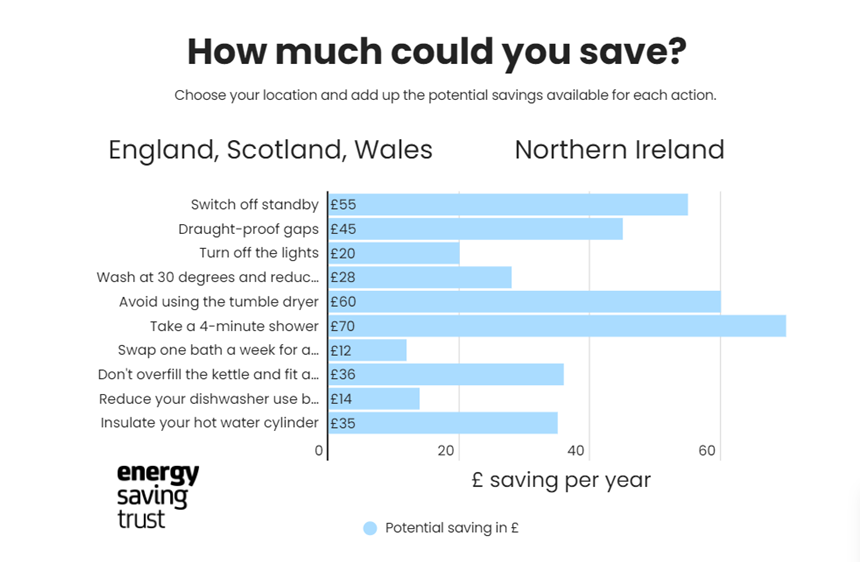10 tips to make your home more energy efficient
With energy bills expected to soar over the winter months, there’s no better time to take steps to minimise your household outgoings and, in doing so, reduce the carbon footprint of your household.
Installing solar panels, improving your loft or cavity wall insulation, or fitting air-source heat pumps provide some of the most effective ways of cutting back on energy usage. However, although they may offer a good investment in the long term, these options usually require a significant outlay up front.
Thankfully, there are plenty of small steps that you can take that will make a difference to both the environment and your bank balance. Here are our top tips for making your house greener:
- Turn down your thermostat by a degree or two. Through turning down the boiler by one degree, it’s estimated that you can save up to £80 per year and 360kg of CO2. Go a step further by turning down radiators in rooms you don’t use often.
- When making a hot drink avoid overfilling the kettle and only boil as much as you need. This will not only save you money and water, but also time!
- Make sure you’re getting the most out of your radiators. Simply closing your blinds or curtains in the evenings can reduce heat loss by up to 17%, and keeping radiators free from coverings helps to ensure you retain even more of that heat.
- Try washing your clothes at 30 degrees. The Energy Saving Trust estimates that washing at 30 degrees uses around 40% less electricity that higher temperatures. It’s also important that you only wash full loads of laundry, as half load settings save very little energy and so aren’t as efficient. Tumble dryers use a large amount of energy so, if you can, try to avoid them and let your clothes dry naturally.
- Fit LED light bulbs. LED technology is the next best option to turning off a switch. Using up to 90% less energy than conventional halogen bulbs, LEDs are the best value lighting solution, saving energy and dramatically reducing your lighting bills.
- Our houses are full of electric devices that are often left switched on, such as televisions, game consoles and microwaves. In fact, the typical household leaves 26 appliances on standby, rather than completely switched off. Making sure that devices are switched off, rather than on standby mode, can save around £55 per year!
- Showers are much more efficient than baths. If you’d like to reduce your energy and water usage even further, try to limit your time in the shower to four minutes and switch to an energy efficient shower head.
- When your devices are fully charged, make sure to unplug your chargers. This can save you money on your bills and help prolong battery life.
- Many modern toilets are fitting with an eco-flush setting, and using the small, rather than large, flush can save a considerable amount of water.
- By blocking up gaps that let cold air in and warm air out of your home, you’ll use less energy for heating. Draft excluders are a great way to stop air from flowing under doorways.
Bonus Tip: Talk to members of your household so that everyone is aware of the steps they can take to help reduce overall water and energy consumption.

Graphic taken from Energy Saving Trust
Warwickshire’s partnership with Act on Energy can help people reduce energy consumption and keep costs down at home. People can call 0800 988 2881 or visit Act on Energy for free advice and information including grants, billing issues and managing debt.
The Energy Saving Trust is an independent organisation which works to address the climate emergency. They offer a wide range of advice and support to individuals and businesses. Find out more about the energy saving trust.
On how to deal with the rising costs of living visit Warwickshire cost of living for more information.
